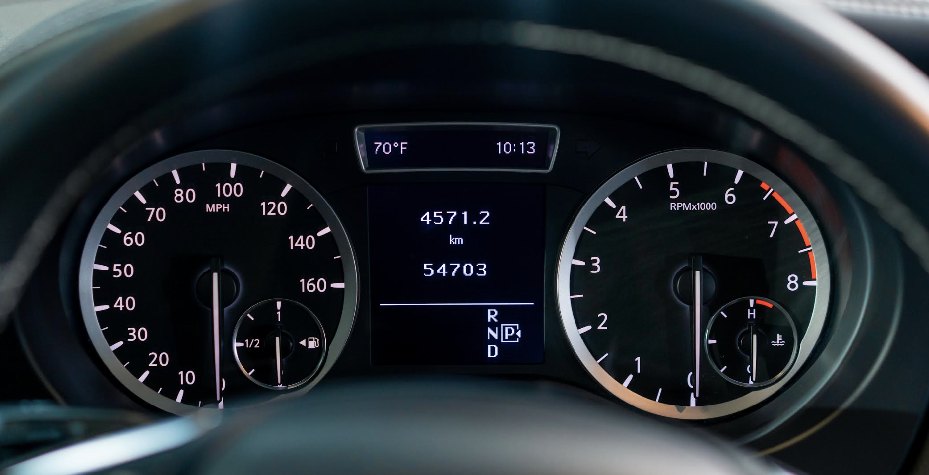
Only vehicle manufacturers can offer a warranty. Third party providers can offer Vehicle Service Contracts (VSC), which are commonly referred to as extended warranties. VSCs provide contractual coverage after a manufacturer’s original warranty has expired for people who want to help control the expenses of unexpected breakdowns. The difference for you, the customer, is negligible, but things can actually improve under a VSC.
Getting protection for an older car can be quite a struggle. It might be in “fine working” condition with no apparent damage, but insurers and warranty providers can still look at it as nothing more than an “old car.”
Thankfully, perceptions toward older vehicles are shifting, and finding a warranty for older cars is no longer an arduous task. In fact, with such a wide spread in vehicle condition, usability, and value, the protection options are just as vast. Whether you’re protecting a future classic or you use it for your daily commute, a decades-old car is no longer a hassle to protect.
Realistically, most protection plan buyers looking for the best VSC for older cars will try to cover a 10- to 20-year-old car. Generally, these cars will be in respectable condition with plenty of life left in them. So, if the car is drivable, reliable, and safe, how do you best continue protecting it with an older car warranty?
Can You Even Buy a Warranty for Older Cars?
As you might imagine, condition, mileage, and age heavily factor into whether a vehicle is eligible for an older car VSC, and they determine what levels of protection are available.
With very few exceptions, manufacturers won’t provide warranty coverage past ten years or 100,000 miles, so it’s up to owners to seek third-party coverage. But there’s no blanket answer to the question of cost. Vehicle Service Contract providers, for older cars, each calculate their coverage prices differently. Some charge based on the car's age, while others depend entirely on the car’s mileage.
The reason behind these differences is that as cars age, problems start to creep up that make repairs potentially difficult, such as:
Parts That Get Hard to Find
As manufacturers discontinue models, they generally stop making parts for them. While some cars have aftermarket support with third-party parts, that are as good or better than those of the original equipment manufacturer (OEM), not all do.
Discontinued and aging cars with computerized controls can be especially difficult to service, as electronics tend to be highly specific to certain models (and even model years). Once they break, they require exact replacements or expensive refurbishment.
Age Being Harsher Than Mileage
Some cars get stashed as investments, which is why it’s possible to buy older vehicles with hundreds or even just dozens of miles on the odometer. Still, unless the owner was meticulous about maintenance, it could be in significantly worse shape than a well- cared-for car with 40,000 miles.
The simple reality is that time is extremely harsh on items such as rubber and plastic. As such, it’s not uncommon to see preserved cars from the recent past with rotted tires, cracked hoses, discolored dashboards, and other age-related issues.
Specialized Service Techs
Not every mechanic can service older cars, and even manufacturer dealerships can have trouble locating out-of-production parts. This can mean a long, costly search or even the fabrication of a new part from a third-party supplier. Yes, even a car that’s just 10 years old can rely on parts and processes that are tough to source!
As a result, service contract providers understandably don’t want to get stuck with a massive, unexpected repair bill, so they’ll cap the cost upfront. For the same reason, in most circumstances, the plan’s coverage won’t begin until the end of a waiting period.
Service Records Being Spotty Having a complete record of all oil changes, maintenance, and repairs is a huge asset when purchasing a used car. Even a vehicle that’s just five years old can have hidden issues that are hard to identify without accompanying service paperwork.
Unfortunately, it’s all too common for these documents to go missing as the years go by, making getting protection for an older car increasingly more complicated. Ultimately, the best course of action is to call and ask about the VSC price for your specific vehicle. The provider will likely have to calculate a cost based on your car’s metrics.
Can You Even Buy a Warranty for Older Cars?
OEM. Many will offer an extended warranty for used cars, but their restrictions are much tighter than they are with third-party providers, which means the following:
- Repairs must be done by factory-trained techs at approved repair centers
- Only OEM parts may be used
- The extended warranty must be purchased before the standard warranty expires
- Term limits are almost always 150,000 miles or less
However, plenty of third-party coverage providers will offer the same (and possibly even better) protections than an OEM warranty.
Under a Vehicle Service Contract, the restrictions are lifted in the following ways:
- Repairs don’t have to happen at factory-approved repair centers
- Parts don’t have to be OEM
- Buyers can purchase a Vehicle Service Contract at any time
- Term limits can be up to 250,000 miles or more
In addition, service contracts generally offer more flexible coverage terms. Buyers may want flexibility in their protection based on their financial situation. Either way, whether a car owner has an extended warranty from the factory or a vehicle service contract, they get the same protection from those unexpected car repairs.
Keep in mind that a Vehicle Service Contract is not insurance: The latter assists with repairing vehicle accident damage, whereas the former covers you in case a part breaks unexpectedly. If you have an AC compressor quit, an Engine Assembly fails, or an Entertainment System dies, that’s when your warranty or service contract will come in handy.
Where to Find Good Warranties for Older Cars
Most Vehicle Service Contract companies, such as CarShield, will cover older cars, but the trick is in getting the plan that’s appropriate for your older car. You’ll need to spend time researching the specific plans available to you and asking the providers about their policies.
Here are some questions you need to have at the ready:
- What are your stipulations for coverage (i.e., make, model, model year, condition, mileage, etc.)?
- What types of repairs are protected, and what is the dollar amount covered?
- What repair facilities can I use?
- What are the term lengths of the contract?
- Is there a maximum or minimum amount I can drive the car?
In other words, you want to make sure that your coverage will be seamless and simple.
Is It Worth It?
A Vehicle Service Contract can spare many financial headaches. Repairs are expensive enough as it is, with many replacement parts costing thousands before the labor to install them, and even if you purchase an older vehicle from a scrupulous seller who plays by the rules, there can be problems that appear only after you purchase the car.
If you rely on your older car to commute, protecting it with an extended warranty or Vehicle Service Contract can prevent you from ending up stranded — especially if your warranty includes roadside assistance, towing, or rental car options!
Steps to Lower Your Monthly Premium with Older Cars
If you want to keep your warranty/service contract payments as low as possible, here are some things to keep in mind to do so:
Cars in Better Condition Cost Less to Cover
Before you buy your Vehicle Service Contract, the provider will have plenty of questions about your older car. The better shape your car is in, the less you’ll pay.
Be Willing to Pay Higher Deductibles
Paying a higher deductible reduces risk for the provider, and it can be a way to lower your VSC cost. The benefit for you is that things work out in your favor the less you need to repair your car.
Limit Your Coverage
There are several plan options available, you can significantly reduce your costs depending on your coverage needs at that time.
Protect Your Older Vehicle Through CarShield
Whether your older car is meant for daily transportation or you’re preserving it as a future classic, you can keep it safe with a Vehicle Service Contract through CarShield. Just remember to check the vehicle's recommended maintenance schedule, and stay on top of it. Before you resign yourself to spending out-of-pocket to fix your aging vehicle, contact CarShield to get a plan in place today.








